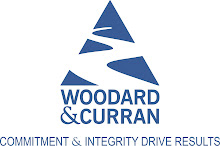Winston-Salem Journal guest column.
September 16, 2008 by Daniel S. Fogel and Peter F. Marsh.
The doubtful among us might call it catching the "green wave" and responding to the natural inclination to "do the right thing," and therefore perhaps not a serious leadership topic. We have a different view about "Go Green Winston-Salem," a climate-protection week series of events promoting environmentally sustainable practices in Winston-Salem.
The Winston-Salem we live in today, like many communities throughout the developed world, enjoyed tremendous growth and prosperity during the industrial era of the late 19th and 20th centuries. But now the employment base from these industries faces serious decline from, among other things, global competition.
Perhaps it is comforting that we are not alone in that economic transition. The message of this week's events reaches beyond global competition. It is fundamentally about the fact that we are highly interconnected to many systems (economic, social and environmental) that must be in balance and be regenerative to be sustainable.
Our viewpoint comes from our work with municipalities, businesses, nonprofit organizations and universities seeking to adopt sustainability principles as part of their core strategy. Recent local examples include our research that supported the Piedmont Triad Research Park's decision to adopt sustainable guidelines for the development and operation of the park. Another is our consultation with the Family Services organization in its decision to build the first newly constructed green building in Winston-Salem under the U.S. Green Building Council's LEED rating system.
With media reporting daily on how climate change, greenhouse-gas emissions, dwindling fossil-fuel sources coupled with escalating prices, a world food crisis and globalization impact people's lives, communities and organizations are being confronted with an uncomfortable reality: Become part of the problem or become part of the solution.
Our research shows that more than 12 percent of the Top 200 Public and Private Companies in North Carolina are beginning to take action on sustainable practices. So how do you get started down the path of sustainability at the individual, organizational and community levels?
It begins with the decision to act -- to act in a way that equally values social capital, environmental capital and economic advancement in a balanced system. Many municipalities and businesses are stepping up to the plate and exploring ways to merge increased capacity (growth and profits) with social responsibility and environmental sustainability.
That leads to the need for education, research and analysis to begin to frame up the short-, mid-, and long-term opportunities that apply to each specific culture, organization or community. It also leads to a new mindset based in systems thinking, what Paul Hawken, one of the most respected authors in the field, has defined as the "Ecology of Commerce."
An effective organization that looks at its strategy through a sustainability lens starts with self assessments. These assessments include a review of products, services, processes and business models and how they could be improved using a sustainability lens. Greenhouse-gas emissions, energy audits, value-chain assessments, competitor analyses and matching processes against standard processes such as ISO 14000 are all methods used by best-in-class firms.
The leadership of this community has begun to answer the question of how to get started. Mayor Allen Joines signed the U.S. Conference of Mayors' Climate Protection Agreement last year, and the city has just completed its first greenhouse-gas emissions profile, with a goal of reducing carbon emissions in the city by 7 percent from 1990 levels. "That may not sound like much," Joines said, "but to meet this mark by our goal of 2012, the entire community must be involved and committed."
As an outcome, the analysis frequently results in a new way to focus on maximizing results for stakeholders (employees, customers, citizens, stockholders). At the highest level, a new strategy emerges that involves a new set of opportunities and market innovations. Actions that do not add value to an organization and its owners should not be priorities. Sustainability is not only good for the survival of our planet -- it is also a key means to increased profitability.
Winston-Salem's stated goals will lead to an exploration of its connection to larger systems of community and the environment. With our support and energy as citizens, that path will eventually lead to an understanding of sustainability as a core strategy for the entire community.
■ Daniel S. Fogel is an associate dean at the Babcock Graduate School of Management at Wake Forest University and chairman and founder of EcoLens Group. Peter F. Marsh is the president and co-founder of EcoLens Group and vice president of Workplace Strategies Inc.
Thursday, September 24, 2009
Subscribe to:
Post Comments (Atom)





No comments:
Post a Comment